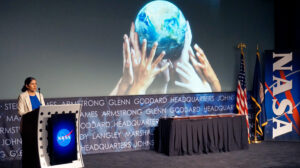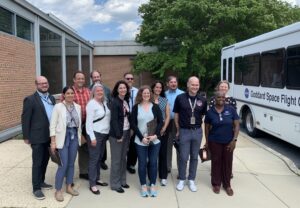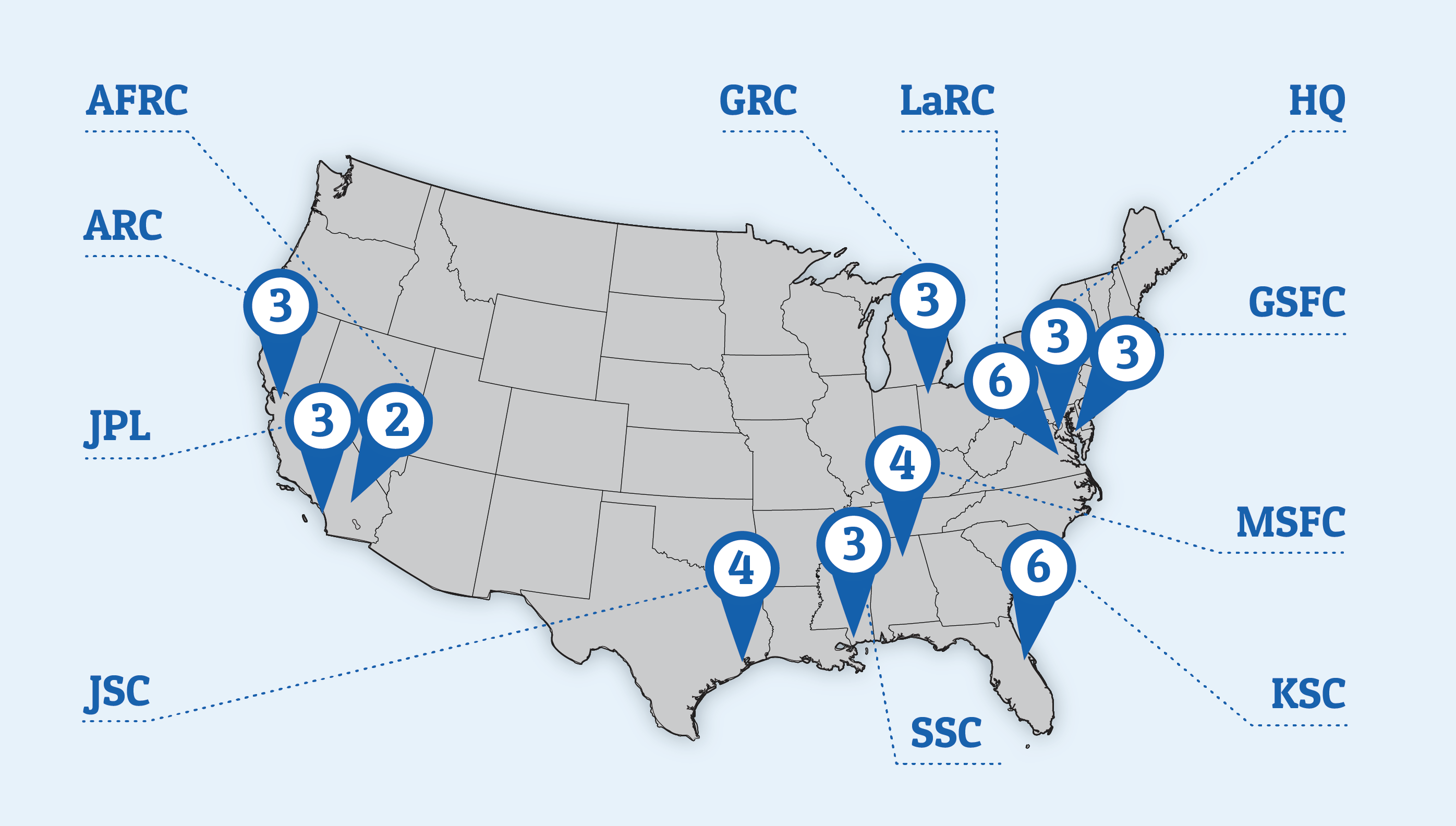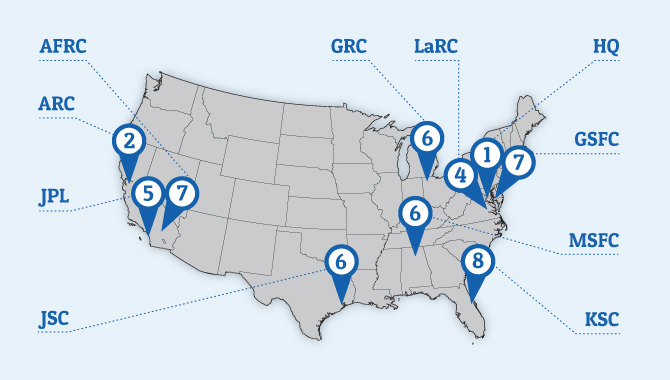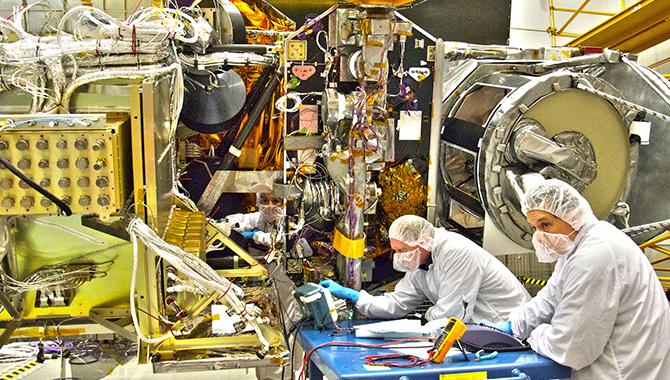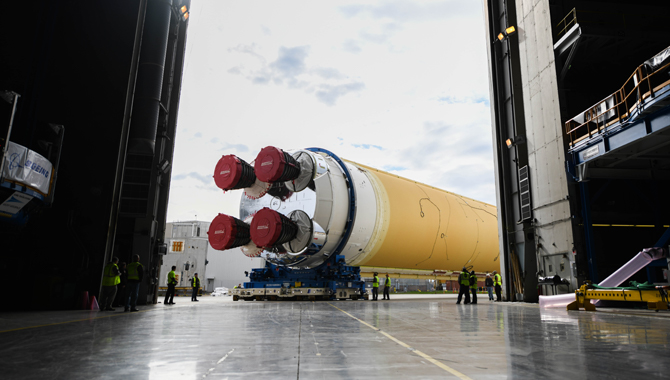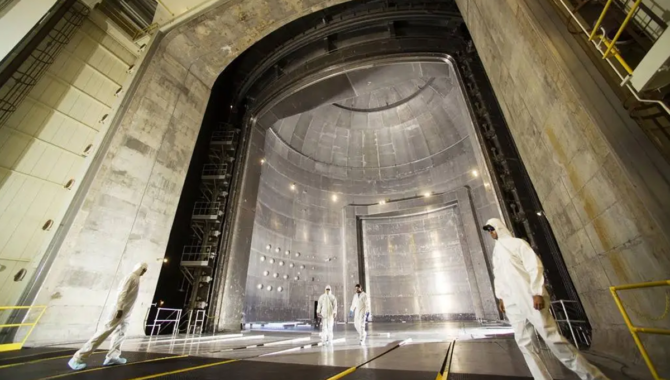
NASA’s Centers contain a wide variety of purpose-built facilities, including this Space Simulation Vacuum Chamber at Glenn Research Center. Photo Credit: NASA
SELP program includes hands-on assignment at different NASA Center, leadership training, and coaching.
APPEL Knowledge Services (KS) has opened another cycle of an immersive training program that places mid-level engineers into the daily operations of a mission at a different NASA Center, where they gain hands-on systems engineering experience that is augmented with leadership training, mentoring, and coaching. The Systems Engineering Leadership Program (SELP) prepares participants to take on more complex and challenging assignments when they return to their home Center.
“Systems Engineering is a critical expertise at NASA that requires continuous learning and development for curation of skills,” said Joe Pellicciotti, NASA’s Chief Engineer. “It’s a discipline that crosses interfaces and often requires an engineer to learn about systems that are outside of their area of concentration. A systems engineer is the cornerstone of mission architecture and implementation that identifies risks across systems and provides guidance to the Project Manager to mitigate those risks.”
“The experiences gained from this program
will be instilled for a lifetime.”
The SELP program is founded on concepts from The Art and Science of Systems Engineering, a monograph prepared by a NASA team with a collective 390 years of technical experience. The authors identify systems engineering as a critical core competency within NASA, and set forth clear definitions, as well as highly effective behaviors.
“SELP is an important component to becoming a systems engineering leader. The experiences gained from this program will be instilled for a lifetime. SELP alone should not be thought of as a certification program that makes you a Systems Engineer, but rather as a significant contribution to the collection of skills necessary to become that systems engineering leader. Continued experience on a variety of missions across the Agency will result in a well-trained and sought after mission engineer,” Pellicciotti explained.
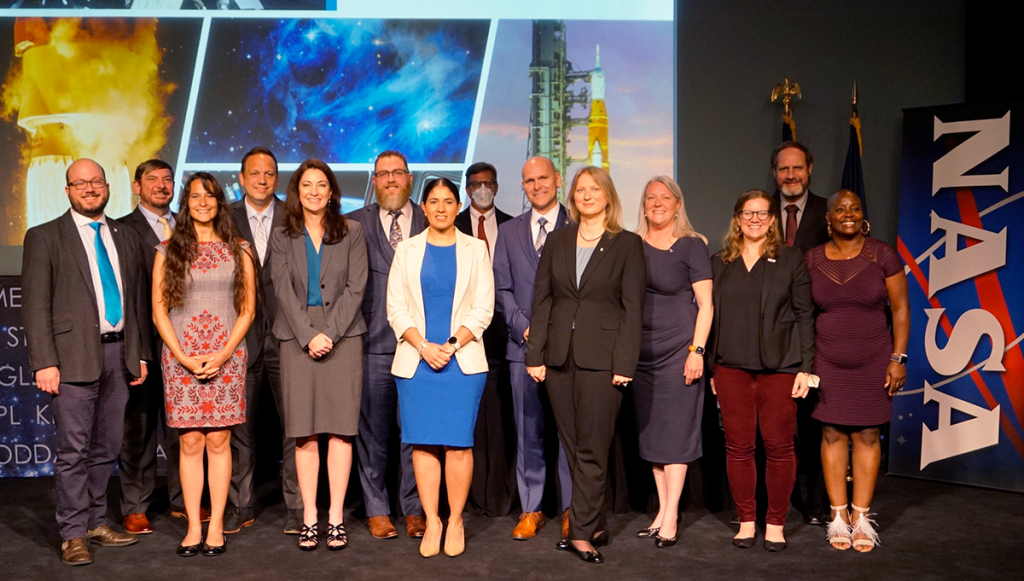
Systems Engineering Leadership Program (SELP) 2022 graduates posing for a photo. Left to right front row: Evan Anzalone, Sarah N. D’Souza, Carla Haroz, Claudia Eyzaguirre, Susan Danley, Karma Snyder, Laura Kushner, K. Renee Horton. Back row: Ben Powell, Darren Baird, Miles Skow, Timothy Roberts, Andrew Rechenberg, George J. Williams, Jr. Photo Credit: NASA/Masha Berger
NASA’s Centers support SELP by reviewing and nominating candidates who can gain the most from the program. These nominations are due by April 12, 2024. A panel of engineering experts reviews all nominations submitted by the Centers. Top candidates will participate in an on-camera virtual interview on June 4, 2024. Shortly after these interviews, final candidates are selected and matched to assignments. Orientation is planned for late July 22-26, 2024, at Kennedy Space Center.
Centers also support SELP by identifying possible assignments for the candidates who are selected. In this cycle, most SELP participants will move to another NASA Center for an approximately six-month assignment. New this year is the possibility of a remote assignment with several shorter trips to the assigned Center for hands-on experience and face-to-face interactions with the project team. In past cycles, SELP assignments have included such high-profile projects as the Space Launch System, the James Webb Space Telescope and the Mars Perseverance Rover.
“One important aspect of the nomination and selection process is the completion of a competency assessment. Nominees consult supervisors and mentors to identify the top systems engineering competencies they seek to further develop through the program year,” said Tiffany L. Smith, Director of APPEL Knowledge Services and NASA’s Chief Knowledge Officer. “Successful SELP graduates proactively plan their learning goals and seek out opportunities while on detail or in training workshops to ensure these gaps are filled before the program is complete.”
The SELP group meets multiple times for workshops over the course of the program, forming a cohesive cohort. These meetings, often held at different NASA Centers, focus on key leadership topics, enabling self-discovery, personal growth and team building.
“So much of knowledge sharing and problem-solving happens through collaborative sensemaking: you reach out to someone you know when you have a challenge, and that person helps you look at it through a different framework or knows someone else who has solved something similar,” Smith said. “The relationships that SELP participants develop with each other and with alumni help NASA to ensure our talented, capable workforce can more easily access the expertise needed to do our jobs.”
These connections are crucial as engineers rise to levels of greater authority in a project or mission.
“Many engineers are introverted and start their career with their head down and excel at the task at hand,” Pellicciotti said. “As you rise through the ranks, and take a more systems perspective, the networks you built within your own discipline, or across disciplines, becomes critical. You need to rely more on the team around you to make decisions that have higher and higher consequences, so trust in your crew is imperative. You’ll also need to reach broader and deeper into the corps to get the data necessary to assess mission risks. As the saying goes, it’s not always what you know, but who you know.”
SELP gives participants an agency-level perspective of NASA, learning how other Centers operate and their capabilities. NASA’s Centers contain a wide variety of purpose-built facilities, including the world’s largest and most powerful space environment simulation chambers, large test stands for firing powerful rockets, state-of-the-art launch complexes, storied mission control capabilities, and the most exhaustive collection of materials properties data in the world. Engineers at NASA Centers are advancing 3-D printing, in-space manufacturing, perovskite solar cell technology, ultrathin solar sails, and many more emerging technologies.
“SELP provides an opportunity for learning by doing, while utilizing the vast experience across the Agency to train these engineering leaders,” Pellicciotti said. “NASA Centers encompass a variety of projects that utilize engineering skills from government, industry and academia. The experience on a real project, with practiced engineering experts—as opposed to a book exercise—becomes embedded in their mind and will add to their body of data necessary for critical decisions on future projects.”
To learn more about SELP, click here. If you are interested in being nominated for SELP, please check candidate eligibility requirements, and reach out the your Center’s SELP advocate, listed here.






